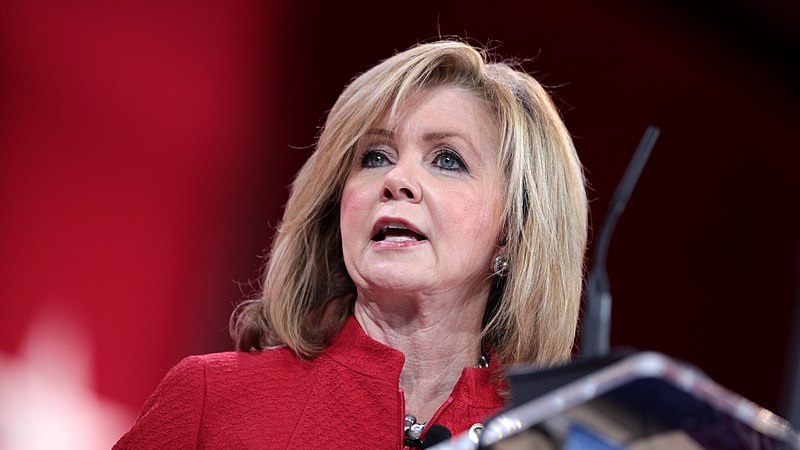
Sen. Marsha Blackburn, R-Tenn., last week introduced a package of seven bills – known as the DOGE Acts – aimed at holding the Federal government more accountable for managing taxpayer dollars.
“These bills would cut discretionary spending, move federal agencies out of the swamp, freeze federal hiring and salaries for one year, begin the process of a merit-based compensation structure for federal employees, and require agencies to get employees back in the office,” a spokesperson from Sen. Blackburn’s office said.
Businessmen Vivek Ramaswamy and Elon Musk were tapped to lead President-elect Donald Trump’s proposed Department of Government Efficiency (DOGE) advisory group – which has a mission to find ways to reduce government spending and potentially do away with any number of government operations.
“The DOGE Acts coincides with Elon Musk and Vivek Ramaswamy’s plan to make the federal government more efficient,” the spokesperson said.
One of the seven bills in the package would establish a pilot program for civilian employees in the Federal government, codifying what President-elect Donald Trump attempted to establish during his first term by creating a Schedule F classification for some Federal employees.
The first Trump administration issued an executive order in 2020 to create the new Schedule F classification for Federal workers in “policy making” positions that would make it much easier to remove newly classified government employees from their positions – which now have civil service rule protections – and replace them with people more apt to carry out the administration’s aims.
The order was not put into action prior to the end of the first Trump administration and was canceled by President Biden in 2021.
Sen. Blackburn’s bill includes a carve out for public safety and national security Federal employees, meaning those sectors would still have typical Federal employment protections.
The senator’s package also includes a bill that would require agencies to submit to Congress a study of the impacts of expanded telework and remote work by employees during the COVID–19 pandemic and a plan for the agency’s future use of telework and remote work.
The DOGE Acts also aims to establish a new commission to report to Congress on moving non-national security related agencies out of Washington.
These two bills align with actions by Sen. Joni Ernst, R-Iowa, who is the head of the newly formed Senate DOGE caucus. Sen. Ernst presented a 60-page report to DOGE last week focused on reforming government telework policies, relocating Federal employees away from Washington, and selling off underutilized government real estate.
Finally, Sen. Blackburn’s package includes bills to cut discretionary funding up to five percent and freeze Federal hires and salaries for one year, with a cap on future year hires for three years.
“What this will do is freeze Federal salaries and Federal hiring so that we can begin to get our arms around this bloated Federal government and begin to make the cuts that are necessary,” Blackburn said on social media on Dec. 5, noting she had already filed the DOGE Acts.
